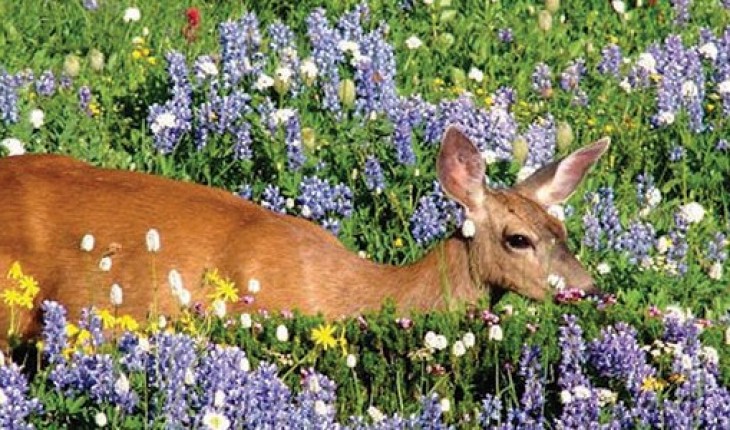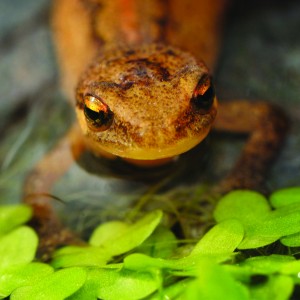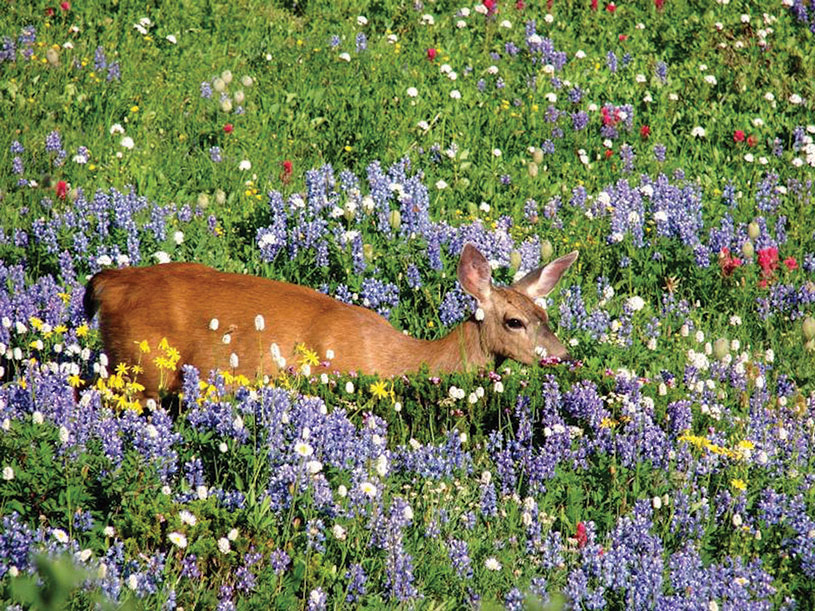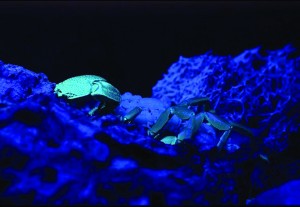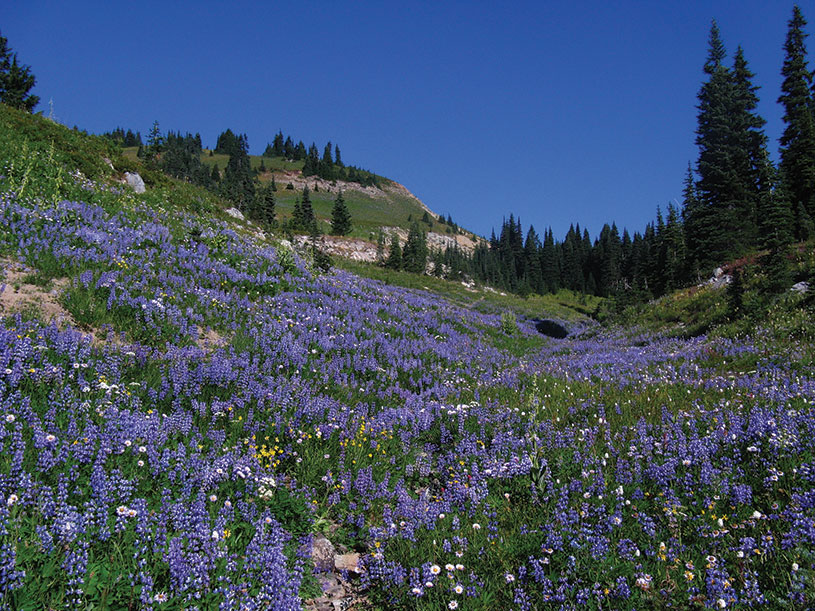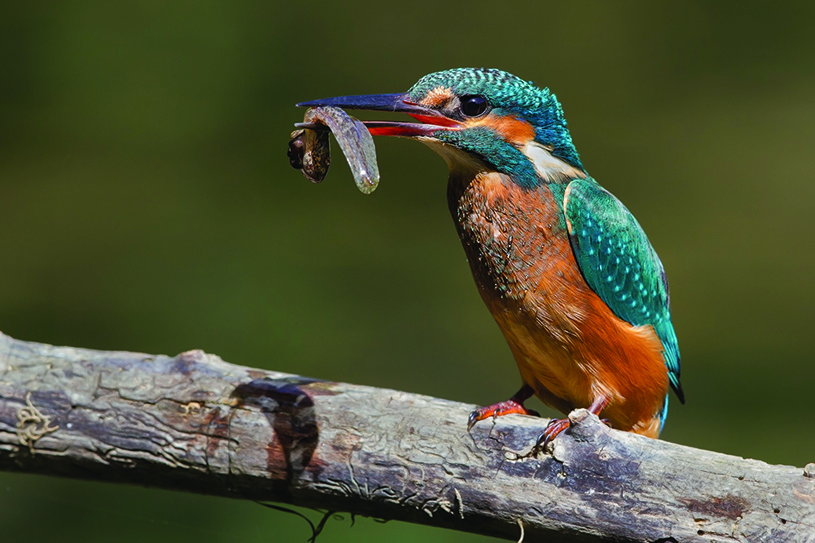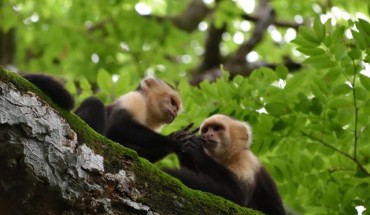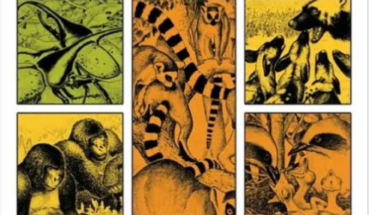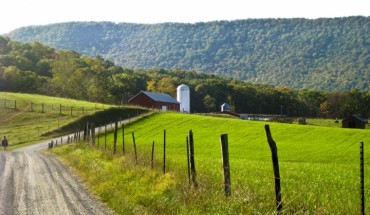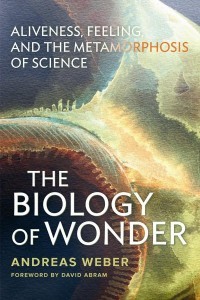
Chapter One: Towards a ‘Poetic Ecology’
By Andreas Weber (Kosmos Journal for Global Transformation)
Of course, the animals need humans. They need us like old parents, against whom we have revolted for a while and who one day, weakened, deprived of their former power, request to be protected by us.
~ Brigitte Kronauer1
Subjective Feeling as the Moving Force in All Life
For 150 years, biology, the ‘science of life,’ made no great effort to answer the question of what life really is. Biologists had a concept they thought to be sufficient for their research: Most of them assumed organisms to be tiny machines.
Today, this belief has been shaken. Only a few years ago we witnessed researchers celebrating the ‘decoding’ of the human genome as a secular breakthrough. They seemed to be on the verge of unraveling the mechanics of life. But not much has happened since then. The boom has come to a standstill. We don’t hear much from geneticists these days. Certainly, they have been charting the arrangement of genes for a growing number of organisms. But at the next step—understanding exactly how genes make the body and how the body gives rise to feeling and consciousness—the view that life is organized like a chain of military orders fails. In genetic research, developmental biology, and brain research, scientists are increasingly realizing that they can only understand living beings if they re-introduce a factor into biology that has been thoroughly purged from it for centuries: subjectivity.
Biology, which has made many efforts to separate emotions from nature since the nineteenth century, is rediscovering feeling as the foundation of life. Until now, researchers, eager to discover the structure and behavior of organisms, had glossed over the problem of an organism’s interior reality. Today, however, biologists are learning innumerable new details and are trying not only to dissect but to reimagine developmental pathways. They realize that the more technology allows the study of life on a micro-level, the stronger the evidence of life’s complexity and intelligence becomes. Organisms are not clocks assembled from discrete, mechanical pieces; rather, they are unities held together by a mighty force: feeling what is good or bad for them.
Biology currently joins physical sciences in a groundbreaking revolution. It discovers how the individual experiencing self is connected with all life and how this meaningful self must be seen as the basic principle of organic existence. More and more researchers agree: Feeling and experience are not human add-ons to an otherwise meaningless biosphere. Rather, selves, meaning, and imagination are guiding principles of ecological functioning. The biosphere is made up of subjects with their idiosyncratic points of view and emotions. Scientists have started to recognize that only when they understand organisms as feeling, emotional, sentient systems that interpret their environments—and not as automatons slavishly obeying stimuli—can they ever expect answers to the great enigmas of life.
These questions include: How does a complete organism develop from an egg cell? How do new biological forms and new species evolve? What distinguishes organisms from machines? Can we design artificial life? What is consciousness? How does the fact that we are living beings structure our thinking and our culture? Why does humanity feel so deeply attracted to nature? What deeper, existential reasons beyond sheer utility impel us to protect nature? In short, what is life and what role do we play in it?
In this book, I describe a biology of the feeling self—a biology that has discovered subjective feeling as the fundamental moving force in all life, from the cellular level up to the complexity of the human organism. I also describe how this discovery turns our image of ourselves upside down. We have also understood human beings as biological machines that somehow and rather inexplicably entail some subjective ‘x factor’ variously known as mind, spirit, or soul. But now biology is discovering subjectivity as a fundamental principle throughout nature. It finds that even the most simple living things—bacterial cells, fertilized eggs, nematodes in tidal flats—act according to values. Organisms value everything they encounter according to its meaning for the further coherence of their embodied self. Even the cell’s self-production, the continuous maintenance of a highly structured order, can only be understood if we perceive the cell as an actor that persistently follows a goal.
I call this new viewpoint a ‘poetic ecology.’ It is ‘poetic’ because it regards feeling and expression as necessary dimensions of the existential reality of organisms—not as epiphenomena, or as bias of the ‘human observer,’ or as the ‘ghost in the machine,’ but as aspects of the reality of living beings we cannot do without. I call it an ‘ecology’ because all life builds on relations and unfolds through mutual transformations. Poetic ecology restores the human to its rightful place within ‘nature’—without sacrificing the otherness, the strangeness, and the nobility of other beings. It can be read as a scientific argument that explains why the deep wonder, the romantic connection, and the feeling of being at home in nature are legitimate—and how these experiences help us to develop a new view of life as a creative reality that is based on our profound, first-person observations of ecological realities. Poetic ecology allows us to find our place in the grand whole again. From this vantage point, we can perhaps start to sketch what the sociobiologist Edward O. Wilson has called a ‘second Enlightenment,’ no longer putting the human apart from all other living beings.2>
A fundamental shift is waiting for us. In my last book, I called this new logic and worldview ‘Enlivenment’—the insight that every living being is fundamentally connected to reality through the irreducible experience of being alive. The experience of being alive is not an epiphenomenon, however. It is the center.3
It is still too early to even guess the future implications of this revolution in biology. The neurobiologist David Rudrauf, who works together with the brain researcher Antonio Damasio, asserts that “the search for the way organisms bring forth value and meaning is at the heart of modern cognition research, from robotics to neurosciences.”4 Stated simply, the new biology considers the phenomenon of feeling as the primary explanation of not only consciousness but all life processes.
As a science, biology currently finds itself in a situation comparable to that of physics a century ago when basic understandings of matter shifted radically. Compared to the biological mainstream, the new biology is what quantum theory was in relation to Newtonian physics—a breakthrough reconceptualization. A hundred years ago, quantum theory discovered that observer and observed are not separate entities and that everything is connected to everything else.
The new biology I will be exploring in the present book adds another beguiling dimension to our very view of ‘objectivity.’ The new biology states that the subjectivity of organisms is a physical factor—an objective reality in its own right. An individual point of view and feelings are not marginal, transient epiphenomena but rather the opposite: the foundation from which an explanation of life has to start. The new biology places values and feelings at the center of a physics of living organisms—not as one of many interpretive approaches, but as an indispensable element of a scientific description of life.
Biology thus realizes that something identical to our own emotions—something deeply similar to our longing for continuation, our desire to be—qualifies as the epicenter from which the entire spectrum of nature unfolds. This understanding provides us with a home in the wilderness again, in the creative natura naturans that so many people are longing for in their private lives, within which they roam and that they seek to protect. How peculiar and sad that within the framework of the mainstream sciences this universal, timeless element of life is seen as a mere curiosity, if it is acknowledged at all.
A black-tailed deer wades through one of the lush wildflower meadows at Mount Ranier. photography | National Park Service, Steve Redman
Feeling the Others
Nature is not dead. We humans love, seek, and long for it. We feel that walking through a forest fills us with peace, gazing onto the ocean calms us. The nightingale’s song moves us. We need nature and know we must conserve it. This is self-evident. But at the same time, we no longer know if our feelings toward plants and animals are justified at all—or something old-fashioned and rather ridiculous. Feelings and the scientific worldview seem to be irreconcilable. For centuries, many scientists have explained that our joy in other beings is only a sentimental illusion. Such a viewpoint ignores a deep human experience. Today, researchers discover that our feelings are phenomena that lie at the heart of modern science. This message is so radical that, so far, it is not readily understood. It flouts respectable scientific opinion. Perhaps there is a subliminal resistance to the new biology because it implies a wholesale reconsideration of so many other things. It means nothing less than the world is not an alien place for humanity, but our home in a profound existential sense. We share it with innumerable other beings that are full of feeling, like us.
Other beings occupy an enormous space in our imagination. If a person is asked about what is beautiful for her, in an overwhelming majority of cases the first answer refers to nature—‘a meadow in bloom,’ ‘the ocean,’ ‘my small urban garden,’ and so on. We decorate our windows and dining tables with flowers. Fabrics and clothes carry botanical patterns. Stuffed animals lurk in children’s rooms. Television broadcasts nature programs in prime time. Urban zoos are always crowded. Many people keep pets. A whole branch of the economy, the tourism industry, generates income by promising access to natural, untouched landscapes.
Humans seek nature because they have lost something inside. In their bodies, humans are nature as well. Our essence consists of flesh and blood. We are organic creatures connected in manifold emotional aspects to the more-than-human world, a realm that is not subject to our reasoning alone. Biologists such as the evolutionary scientist Edward O. Wilson believe that mind and feeling have developed in a continuous co-evolution with plants and animals—the ‘Biophilia-hypothesis.’5 Mind and body have found their forms in such intimate contact with nature that they cannot survive without its presence. Today, many scientists have realized that the fact that we are animals defines our perception in such a fundamental way that we cannot change much about it. We do not experience the world primarily with our minds but with our senses and our bodies—and the consequence of this connection in the flesh is that we perceive the world not as a causal chain reaction but as vast field of meaning. Human beings think in symbols and metaphors. Mind is meaning as well.
To fully experience this side of our being and to integrate it into our personalities, we are dependent on the presence of nature like a symbolic mirror or a repertoire for expressing our inner lives. We gather the food for our thoughts and mental concepts from the natural world. We transform plants and animals into emotional/cognitive symbols according to their real—or presumedly real—qualities: the snake, the rose, the tree, for instance, are powerful organic images that recur in art, myth, and cultural rituals throughout human history. These forms of nature seem to have a deep connection to the individual as well as the cultural subconscious. In their living reality and transformations we recognize ourselves.
The ‘poetic ecology,’ which I propose and develop throughout this book, is able to connect these deep human and cultural experiences with a scientific understanding of life. Within nature, those values and meanings that life processes naturally produce manifest as living, vibrant forms that are therefore observable by the senses. In the bodies of other living beings existential experiences such as abundance and threat, flourishing and hunger, and death and birth, are not hidden but visible. They are manifest in their appearance; they are incarnate in the bodies of other organisms. Nature in this fashion exemplifies what we also are. It is the living medium of our emotions and our mental concepts.
Given its intimate connection with the formation of our emotional identities, it is no wonder that nature plays such a grand role in human culture. Culture throughout the ages has in many respects been an elaboration of the deep organic connections we share with all other beings—an armamentarium of existential symbolics. One could even put it, as Henry Miller once did, as follows: “Art teaches nothing except the significance of life.”6
Trees, for example, qualify as symbols for life because in our experience they really are life: After the symbolic death in winter, they burst into green again. They grow, bloom, and bear fruit without any involvement whatsoever from us. Productivity, adaptation, innovation, and harmony, but also decay and failure happen not only to us and our projects but to all of nature. The power of the elements, the birth, growth, and vanishing of other beings, the alternation of light and dark that enframe our own inner landscape—the inner and outer dimensions of ‘nature’ are one.
But if the longing for nature is a necessary condition of our being, the vanishing of other creatures will have far-reaching consequences. It is possible that in the global environmental crisis, we are about to destroy something without which we are not able to exist. Man may be threatened by an emotional loss that will adversely affect the basic structure of his character. Harvard psychologists believe that by 2020, depression will be the second most frequent illness worldwide after heart and circulatory disease, fuelled in large part by a growing alienation from nature.7 Children in industrialized countries are no longer able to name more than two or three native plants, and adults know more automotive brands than birds’ names. In the US, the writer Richard Louv has proposed to add a new disease to the clinical catalogue: ‘NDD’—‘Nature Deficit Disorder.’8
But why is nature so important? Because all our qualities—and particularly the most human ones—spring forth from an organic ‘soil.’ We are part of a web of meaningful interpenetrations of being that are corporeal and psychologically real at the same time. Humans can only fully comprehend their own inwardness if they understand their existence as cultural beings who are existentially tied to the symbolic processes active inside nature. For humans, the biggest risk of biodiversity loss is to bury this understanding. Without the experience of natural beauty, our souls are bound to lose an important part of their ability to grasp what grace means and to act according to that understanding. Without experiencing our real emotional and physical connectedness to the remainder of life, we risk having stunted, deformed identities; we will yearn narcissistically for a completeness we alone cannot achieve. Perhaps the most important psychological role that other beings play is to help us reconcile ourselves with our pain, our separation, and our ephemeral existence. The primal feature of nature is that it always rises again, bringing forth new life. Even the most devastating catastrophe gives way over time to green shoots of rebirth and productivity, and, therefore, to hope for ourselves.
The Return of Values into Nature
Scorpion and young glowing under ultraviolet light. photography | ©Dan L. Perlman | EcoLibrary 2008 DP109
Many people object to the ways in which science disdains such experiences, regarding them as archaic or frivolous. They feel that something is wrong with the reduction of life to a Darwinian struggle of meaningless competition and efficiency. But what is wrong could not be perceived as long as the doctrine of a value-free account of life prevailed. For a long time, scientists have argued that there is no reality apart from dead matter and that, therefore, all life must be reduced to the blind laws of survival and selection. This approach defines how mankind is treating the planet. The science-based ideology of efficiency recognizes no values apart from egoistical greed, which it elevates to a law of nature. According to this view, everything else, and particularly feelings such as awe, love, and generosity, are viewed as mere illusions invented by our genes for better survival. We tend to banish and ignore that which we know in our hearts is true and to cling to ‘facts’ that we feel to be false. But as living, physical beings, we always have a compass inside of us guiding us towards what life really is.
We have been perceiving ourselves and the remainder of living nature incorrectly because the natural sciences have been studying organisms in the wrong light (or at least, a seriously incomplete light) for centuries. They have been fixated on understanding them—and of course, us—as purely physical, external matter buffeted by impersonal forces of nature. In so doing, they have pushed aside the experience of beauty as unworthy of scientific scrutiny and they have exiled poetic experience and expression. Science deigns to study only ‘objective knowledge,’ believing that ‘truth’ resides only in the neutral and lifeless building blocks of life. To understand life, we must join the conspiracy to kill and dissect it. As if in a self-fulfilling prophecy, this is exactly what is happening with the biosphere right now. The conceptual framework that we have invented to understand organisms is the deeper reason for our environmental catastrophe. We are extinguishing life because we have blinded ourselves to its actual character. We treat it so cruelly because we believe it to be machinery, raw market fodder, scrap material. But when the earth is devoid of other creatures, we will be much lonelier. Perhaps then we will realize that we have annihilated a part of ourselves. Along with nature, our feelings are being disabled, perhaps fatally. How we understand the existence of plants and animals will decide our future. This does not mean that we will die of hunger and thirst, or that we will psychologically degenerate if there are fewer plants and animals. But we will surely suffer in ways that have yet to be understood. And because body and mind are intertwined in the most intimate ways, because mind represents the body symbolically, in the end it is not only our feelings about life that will be threatened, so will our real lives.
A century of unequaled humanitarian and ecological disasters lies behind us—and without a doubt new and even bigger ones are ahead. To rightly understand what life is will decide our future. Until now, culture has celebrated a rigid separation of the human dimension from the remainder of life. Until now, avantgarde culture has celebrated this gap as self-evident and has denounced any attempts to bridge modernity with ‘nature’ as romanticism or as a misguided nostalgia for authenticity. But this diagnosis is itself misguided. The real disconnect is not between our human nature and all the other beings; it is between our image of our nature and our real nature.
For at least 150 years, we have been mourning the disappearance of our soul—and during this same time we have been deliberately sacrificing nonhuman nature on a global scale. These are two sides of the same process. Our task, therefore, is to overcome the obsession of separation, which never has been the whole truth. The existential imperative for today and tomorrow, therefore, is to rediscover the right balance, without which the world will truly slip away. We have to learn how we can get back to ourselves by getting closer to ‘the others’ — the living things with whom we share the condition of ‘livingness,’ as Henry Miller put it,9 the capacity for expressive freedom and creative imagination.
The thoughts set forth in this book inescapably point to a significant ethical choice. We must save nature to allow aliveness to unfold in continuity. Part of this attitude is that we must conserve the presence of other beings for the sake of our own souls. We are alive and our aliveness would shrink to a much lesser degree without nature or with an impoverished nature. There is a crucial and central place in ourselves that is able to blossom only if connected to the presence of a huge net of other beings and entangled with the give-and-take of those relationships. But this inner center in ourselves at the same time is what points beyond ourselves, beyond the experience of nature as a mere resource for our egos. This inner center is where we are most deeply alive because it is the ‘livingness,’ the aliveness as such, which stirs inside us. It is the creative core of the poetic space we all, mice and men, inhabit. This inner center even precedes the emergence of identity and self. It is nature’s center as well as it is the individual’s focus. Nature is about beauty because beauty is our way to experience aliveness as inwardness. Beauty is aliveness felt—its potential, its open future, its promises, its tragic possibilities. Nature is the phenomenon of self-producing life making itself visible (and thus self-producing beauty). It is for this reason that we must save nature. After all, for living beings like us the only meaningful mode of being is to act in order for life to be. We must preserve living beings for life’s sake, in order for life to be able to self-organize, to unfold, to experience itself.
In the unfolding new biology, which recognizes feeling as the ground zero of all life processes, our viewpoint must shift towards an ‘ecology of feeling.’ Only this provides a genuinely new perspective that includes a renewed sense of self and a renewed sense for environmental protection. An ecology of feeling leads us to a new ecological ethics that declares we should conserve nature not only because it is useful or because its complexity has an intrinsic value. We should protect other beings because we love them. We love them because we are a part of them, and even more, because they are part of us.
A Science of the Heart
There is a way to move beyond the bleak, lifeless picture of the world that major fields of official science have been painting over the past few centuries. Our perspective can be reversed if the cell is no longer viewed as an autonomic survival machine but as a being for whom life means something and who experiences this meaning as feeling. The revolution in the life sciences thus may penetrate to the nucleus of a truly ecological ethics. This would be an ethics in which the earth is no longer the neutral stage for an anonymous battle of survival. If nature is the theater in which we experience feelings and develop our identities, then we must protect it because we otherwise would destroy our own selfhood. Only this viewpoint can transcend the void in our current framework of valuing life that cannot explain by its own philosophical terms why a thing such as a bird or the landscape in which it is nesting and singing must be conserved. We may intuitively feel that such beings possess an intrinsic value, but it is precisely this value that has been denied and annulled by science as well as by economics.
But the values at stake—the values that current biology cannot provide an explanation for—are the values of life. They are the values by which organisms create themselves at every instant and by which they organize their experiences. We are able to perceive these values because they are inscribed into our bodies. Certainly not because such a feeling is efficient for survival. Quite the opposite: survival is only possible for something that can feel.
This book is directed against the disenchantment of the world produced by the natural sciences and humanities. But at the same time, it refrains from proposing a nonrational alternative or substitute for science. Instead, I attempt to explore a third approach: poetic precision. I argue that as living, physical beings interconnected with a living world that is bringing forth existential experience and inwardness, we share a rich common ground with all other living beings. But to reach this new point of departure, you must accept one key premise: this common ground is not objective in the rational-empirical sense. It is defined by ‘poetic objectivity.’ The means that all organisms share to mutually transform one another is their ‘empirical subjectivity’—a subjectivity that is a defining feature of the biosphere and that manifests as a natural physical force.10
My analysis here will also embrace the sphere of meaning in life—while remaining grounded in the empirical standards of contemporary biological sciences. This goal is all the more important as new nonrational ways of explaining the living world gain popularity. For example, the ‘Intelligent Design’ theory has been witnessing a major renaissance. This theory, popular in the eighteenth century with the so-called physicoteleologists, tried to reconcile the early results of science with a Christian worldview. It naively claims that an intelligent creator invented organisms in the manner of a cosmic watchmaker. Such an attempt does not leave behind mechanical thinking but rather reinforces it, in spite of its being a reaction against the strictly mechanistic view of the life sciences. So, today, with many other nonrational attempts to redeem science from the cold and technical enterprise that it has become, the proposed alternatives say more about current disenchantment with science and offer little in the way of understanding and enlightenment.
With this book I do not propose a farewell to science, but rather—if you will accept the audacity of the term—a new science of the heart. If we interpret the results of biological research without bias, this is the only pathway that seems possible to me. The biosphere is neither a mechanical structure that has evolved without any sense and meaning, nor a mechanical apparatus designed by an unknown creator. It is alive. And alive means that it is a constant unfolding of creative imagination that arises from the continuous entanglement of matter and inward experience.
This third way, until now, has rarely been considered: that matter itself could be creative without a central control or planning agency. That matter alone could follow a principle of plenitude and bring forth subjectivity from its very center. This view is the path a poetic ecology will be taking and which I intend to pursue in this book’s pages. A poetic ecology asserts that life—and not causal force—is the original animating power of the cosmos. A poetic ecology understands the ‘household of nature’ less as an economy of checks and balances than as the creative interpenetration of sentient beings.
I have adapted my writing style to support this point of view. I write about nature not only as an object of research but also as a subject of experience—as the place of my subjective experience as a living being. I try to write from inside of the living process. Creation can only be grasped in being creative. Imagination can only be echoed by imagining. The answer to the question of what life is must be, to be honest and sincere, an unsolved and unsolvable question. To be genuinely understood, the expressive phenomenon of ‘life’ demands further expression—or rather, it must be felt. But the chill, abstracted languages of the sciences place a barrier between us and the aboriginal feeling of life. Aliveness remains inaccessible and incomprehensible to ‘objective’ science in the way it defines itself today.
Thus, this work is necessarily somewhat personal: I will lead the reader into nature and try to make him part of some of my crucial experiences there. But this journey will simultaneously be an expedition into the thinking of modern biology. I will weave the narrative of my own encounters with animals, plants, and ecosystems with my analyses, background reflections, and reports, explaining science through my experiences. Here I am guided by the conviction that every touch of nature deeply stirs currents of feeling within us, in the same manner as a light breeze stirs the canopy of a tree, the rustle a subtle witness to the atmosphere’s restlessness.
Note. Human Ecology: Finding the Human in Nature (New title: The Biology of Wonder) will be published by New Society Publishers, 2016.
Footnotes
1 Kronauer, B. (2006). Die Feder des Hyazintharas. Drei Texte über Tiere. Warmbronn: Verlag Ulrich Kreicher, S. 24. Translation by the author, A.W.
2 Wilson, E.O. (2012). The social conquest of Earth. Boston: Norton & Company.
3 Weber, A. (2013). Enlivenment. Towards a fundamental shift in the concepts of nature, culture, and politics. Berlin: Böll. Download at: http://www.boell.de/sites/default/files/enlivenment_v01.pdf
4 Rudrauf, D. personal communication, 24. Mai 2006.
5 Wilson, E.O., & Kellert, S.R. (1995). The biophilia hypothesis. Washington D. C.: Island Press.
6 Miller, H. (1960). Reflections on writing. In: Wisdom of the heart. New York: New Directions, p. 24.
7 Weber, A. (1997). Was ist so schön an der Natur? In: GEO Wissen Wie wir unsere Welt begreifen: Sinne und Wahrnehmung.
8 Louv, R. (2005). Last child in the woods. Saving our children from Nature-Deficit Disorder. Chapel Hill: Alonquin Books.
9 Miller (1960). loc. cit.
10 The concepts of ‘poetic objectivity’ and ‘empirical subjectivity’ are central to the Enlivenment-hypothesis. I explore them in depth in Weber (2013), op. cit.
